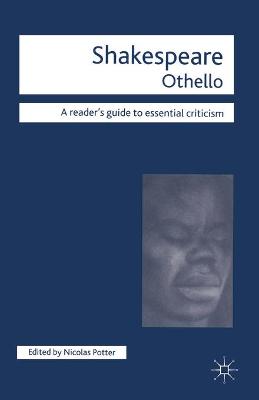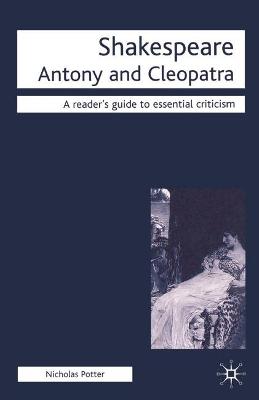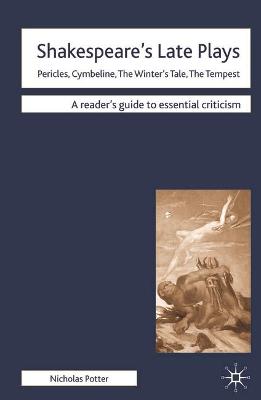Readers' Guides to Essential Criticism
3 total works
Othello is perhaps Shakespeare's most troublesome tragedy. While it has retained its popularity on the stage, many critics have struggled to see value in it. The Romantics warmed to the figure of Othello himself and wrung their hands over the plight of Desdemona; the Modernists looked down on the play as an achievement of Shakespeare's stagecraft rather than of his imagination. The play continues to be read, staged and studied, and each new approach provides a new view.
In this Readers' Guide, Nicholas Potter traces the critical history of the play from the earliest pronouncements to present-day criticism. The most significant critical accounts are excerpted and discussed, placed within their historical context and assessed for their contribution to the developing evaluation of the work. The Guide assumes no particular view of the continuing debate, but tries to do justice to the variety of opinion, as well as pointing out significant themes and recurring concerns. The ugly racism of many critical accounts, and the inadequacy of many attempts to face up to the issues raised by the play, are not glossed over. Othello is a play that challenges many received opinions and that still provokes controversy. Would it be worth study if it did not?
In this Readers' Guide, Nicholas Potter traces the critical history of the play from the earliest pronouncements to present-day criticism. The most significant critical accounts are excerpted and discussed, placed within their historical context and assessed for their contribution to the developing evaluation of the work. The Guide assumes no particular view of the continuing debate, but tries to do justice to the variety of opinion, as well as pointing out significant themes and recurring concerns. The ugly racism of many critical accounts, and the inadequacy of many attempts to face up to the issues raised by the play, are not glossed over. Othello is a play that challenges many received opinions and that still provokes controversy. Would it be worth study if it did not?
This Guide provides a critical survey of the responses to this popular play. Chronologically arranged, the book draws on a rich range of critical writings, including Dr Johnson, Coleridge, Bradley and Leavis. This material is linked to more general issues regarding Shakespearean criticism and scholarship, and the development of literary theory.
Shakespeare's late plays are a 'mixed bag' with a common theme: from the fiendishly jealous Leontes to the saintly Pericles; from the ineffectual Cymbeline to the omnipotent Propspero; from the 'sprites and goblins' of The Tempest to the famous bear of The Winter's Tale, the characters have excited wonder and contempt while the range of incident is almost irresponsibly extravagant. Was Shakespeare losing his grip, or his interest, or both? Was he striking out in some bold new theatrical direction?
This Guide provides a critical survey of the major debates and issues surrounding the late plays, from the earliest published accounts to the present day. Nicholas Potter offers a clear guiding narrative and an exploration of literary history, focusing on how criticism of these remarkable works, and attempts to make sense of them, have developed over the years.
This Guide provides a critical survey of the major debates and issues surrounding the late plays, from the earliest published accounts to the present day. Nicholas Potter offers a clear guiding narrative and an exploration of literary history, focusing on how criticism of these remarkable works, and attempts to make sense of them, have developed over the years.


